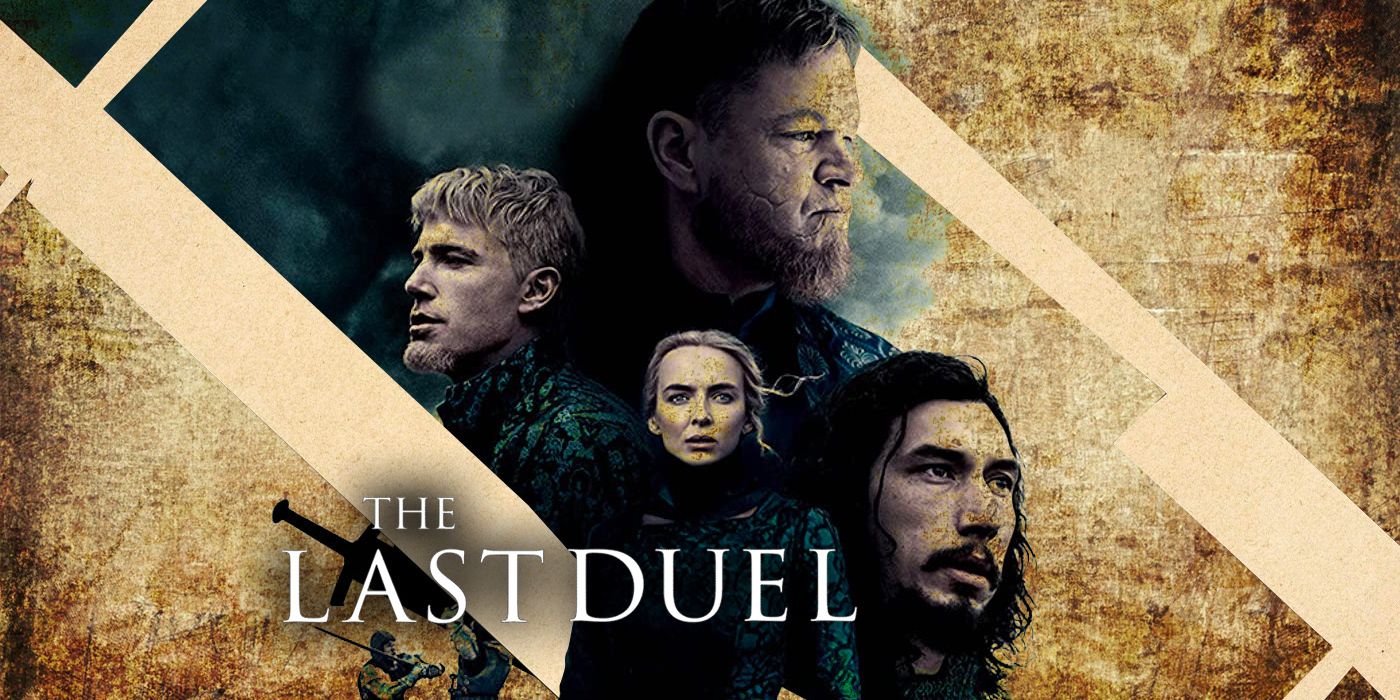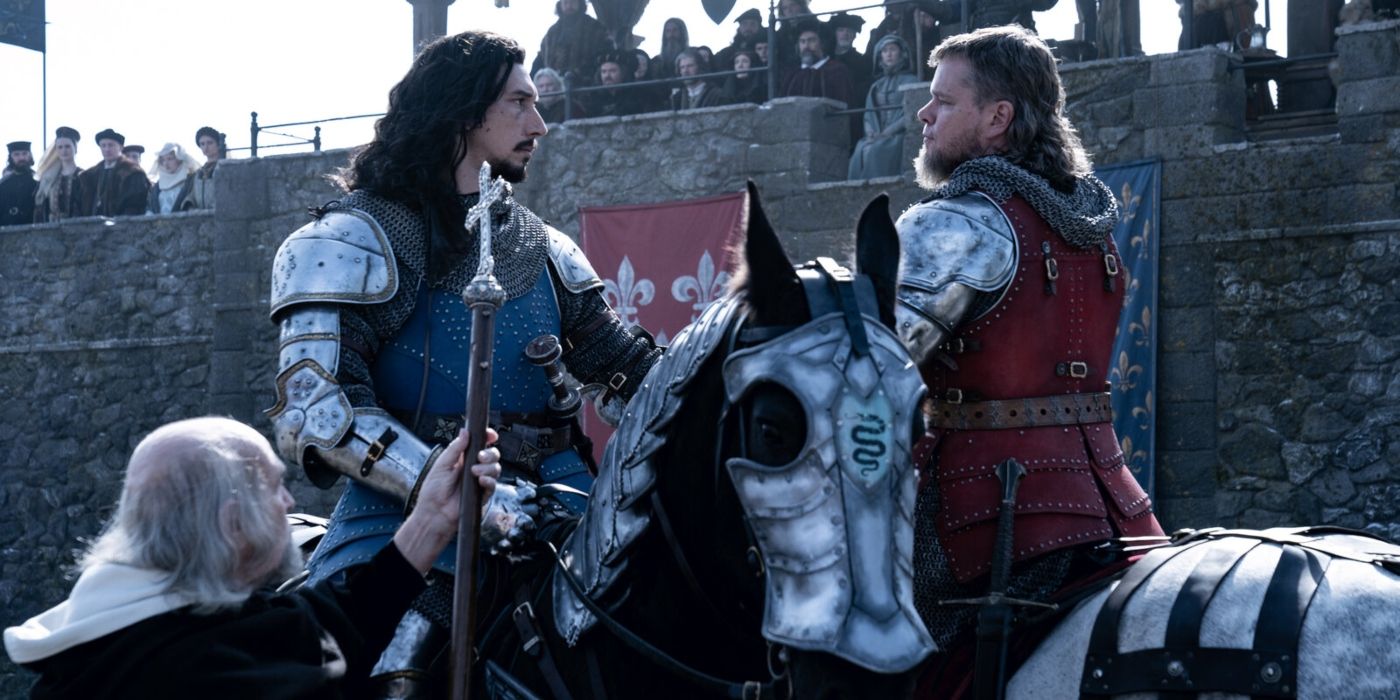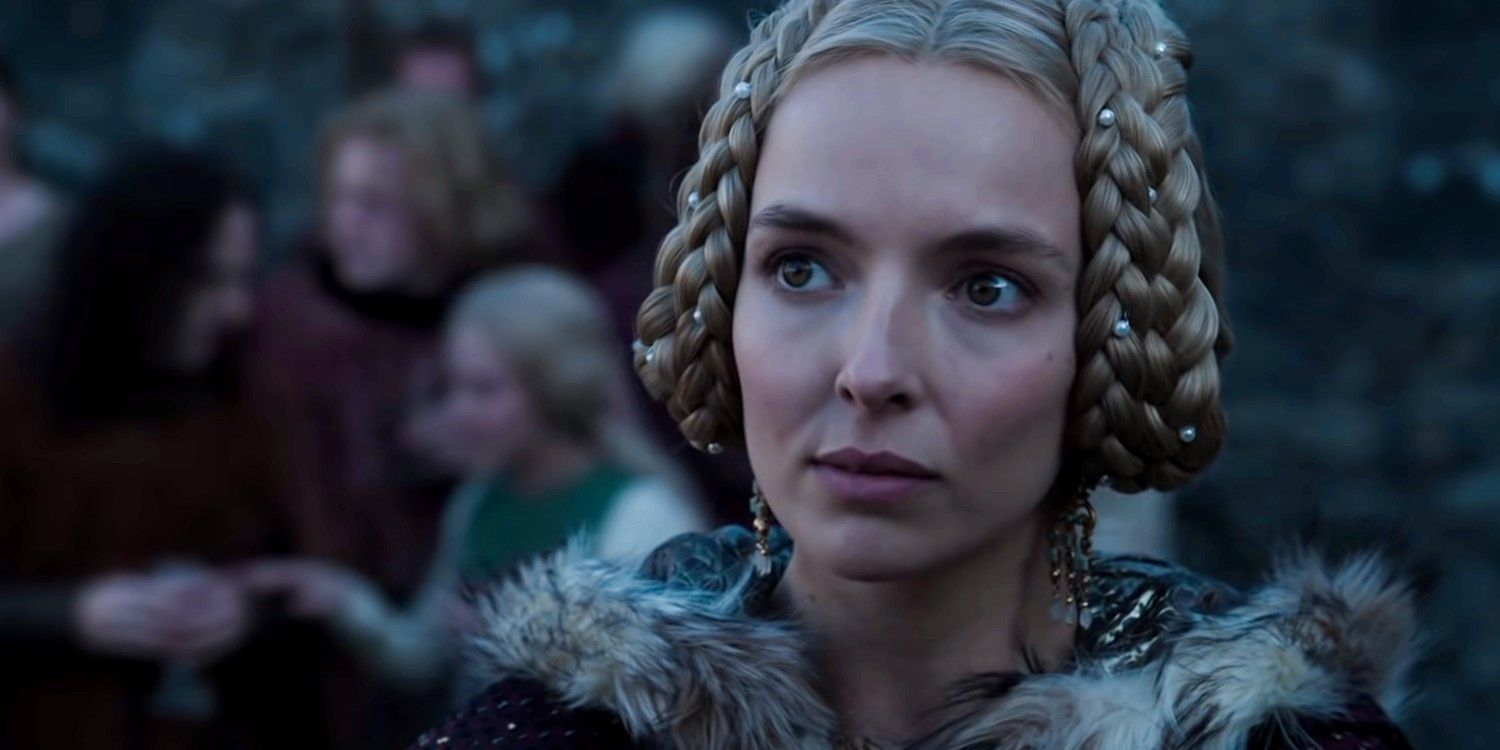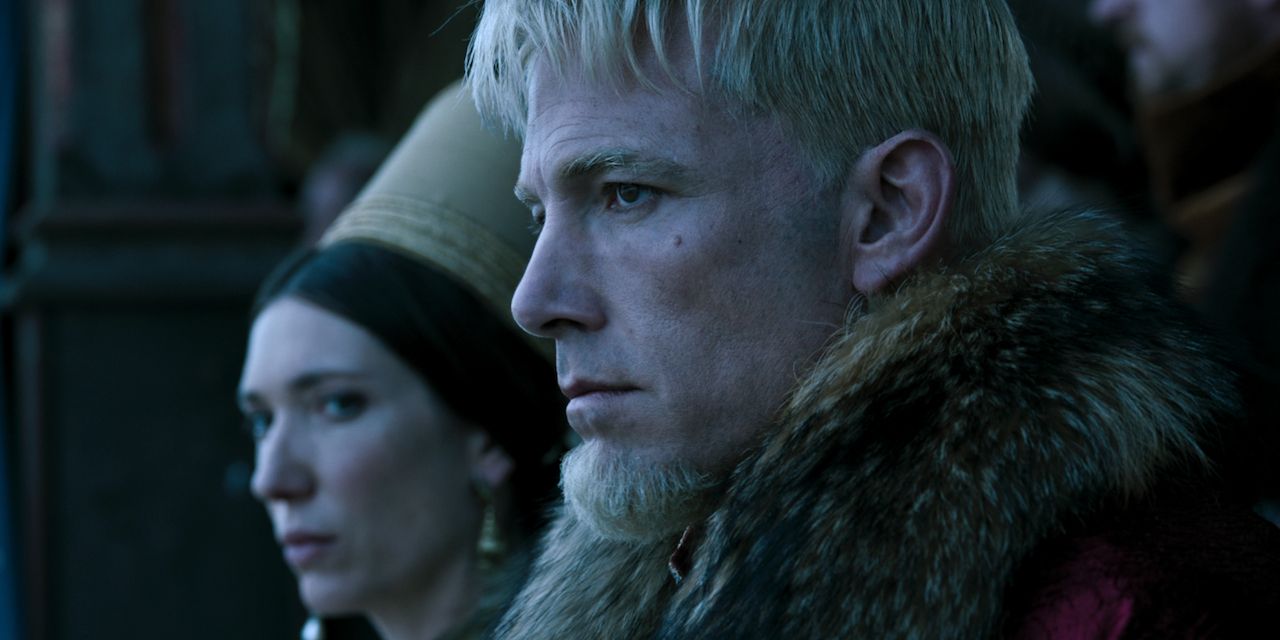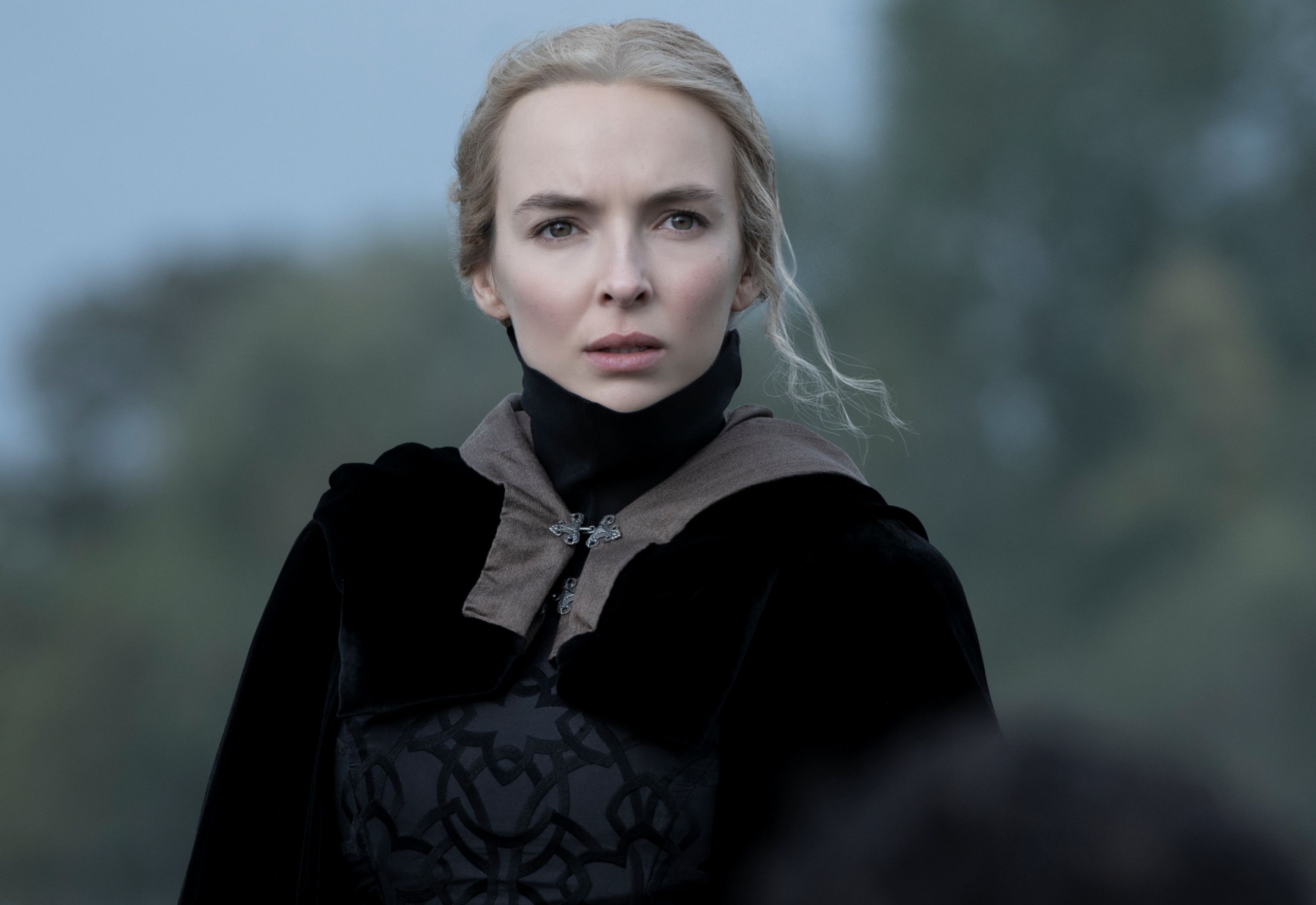Ridley Scott's The Last Duel hit theaters recently, and not only is the gripping medieval drama the filmmaker's most inspired movie in years, but it's also an astounding showcase for Jodie Comer. Fresh out of her Free Guy get-up, Comer steps into the unfettered courage of Marguerite de Carrouges, a Frenchwoman who is attacked and raped by Jacques Le Gris (Adam Driver). As Comer's onscreen husband, Jean de Carrouges, Matt Damon must step up to defend her honor and hold his former chum accountable. Predictably, Le Gris denies the accusations and accepts his foe's challenge. The result is France's last government-sanctioned duel to the death.
Damon, Ben Affleck, and Nicole Holofcener adapted the script from Eric Jager's 2004 book, The Last Duel: A True Story of Trial By Combat in Medieval France. As I'll note later, there are a number of differences between the way events actually unfolded and the way Scott and company imagined they unfolded, but the broader strokes of the story remain the same. If you've seen the movie and need some help wrapping your head around what happens, fret not! We've got an explainer for that.
Who Wins The Duel?
Naturally, Scott saves the best for last. The opening scene of the movie depicts the minutes directly before Carrouges and Le Gris square off, but we don't see the outcome until the final act. We watch as an agonized Marguerite endures horrid court proceedings, conniving friends, and a mountain of odds stacked against her. When it's finally time for the two to duke it out, we're all more than ready. We've watched both men physically and psychologically abuse Marguerite. We've watched one of them rape and gaslight her, and the other nearly kill her when she comes forward with the truth. So yeah, we're ready for some comeuppance.
Carrouges and Le Gris are fitted with their jousting gear, helped onto their horses, and strapped from head to toe with weaponry as the king and his subjects watch silently. The showdown begins in earnest, with Le Gris landing a few gnarly jabs that send Carrouges tumbling off his horse. Already wounded, Carrouges manages to even the playing field by forcing Le Gris to the ground with him. Both men grow more desperate and more ferocious, slashing, stabbing, and thrusting while Pierre, King Charles VI, Marguerite, her backstabbing friend, and a fascinated audience watch.
The fight ends with Carrouges gaining the upper hand and forcing a bloodied Le Gris to the ground. Even when it's clear he has lost, Le Gris maintains his innocence. He ends it, driving a knife through his former friend's mouth and out the back of his head. By winning, Carrouges vindicated himself and his wife, at least to everyone present; a win was a message from God saying that Marguerite told the truth and Le Gris would face holy judgment. If Carrouges had lost, it would have meant a gruesome execution for Marguerite.
After the duel, Le Gris' corpse is unceremoniously stripped naked, strung up, and displayed before the masses as proof of his guilt. A battered Carrouges, accompanied by his wife, leaves the arena and returns home.
The Last Duel is divided into three parts that reflect the conflicting accounts that emerged from the event. Speaking with Good Morning America, Damon confirmed that he and Affleck wrote their respective characters' parts while Holofcener penned Marguerite's account of the attack. It was important to them to highlight that Marguerite was telling the truth, and that the system wasn't built for that kind of heroism.
However, while they each wrote different sections of the event, all of them were in awe of Marguerite's courage. “A woman was considered property,” Damon said of Marguerite's standing in society. “Property of her father, and then eventually property of her husband. What she did was incredibly brave.”
Who Told the Truth?
The Last Duel spends most of its runtime slogging through exhausting bouts of pride-fueled quarreling, customary peacocking, and shameless gallivanting. The first two acts, or parts, are titled, "The Truth According to Jean de Carrouges" and "The Truth According to Jacques Le Gris," respectively. Both Carrouges and Le Gris offer vastly different versions of what happened, but thankfully, Scott helps us separate fact from fable with a powerful visual statement. When "The Truth According to Marguerite de Carrouges" appears on the screen, every word but "The Truth" fades away, signaling to audiences that her account is the one to which we should be listening.
Marguerite risks a great deal simply by telling her husband about the attack. Men of the time would often kill their wives on the spot if something like this had been said, and there's a fleeting moment when that looks very possible. But she holds her ground. She takes the case through the courts, eventually gaining an audience with the king and his advisors. The Last Duel is ultimately her story. It's her steadfastness in the face of certain death that makes this so compelling, and it's from her bravery that we can learn the most.
How True Is This True Story?
The source material's author pulled from countless records, accounts, and other sources to piece together what happened. The murkiest sections of the story are the ones contested by the chroniclers who witnessed the event.
Jager said, “There were three chroniclers who gave detailed accounts of the sword phase of the fight, and they have slightly different accounts of how Carrouges managed to get Le Gris on the ground. Did Le Gris stumble? Or did he trip? Or did Carrouges — according to one account — grab him by the helmet and throw him down? ... One of the chroniclers talks about an opening joust, but I had to elaborate a little bit on how a joust like that would unfold with lances broken. Eventually, you have the two men on the ground, fighting with hand weapons rather than lances.”
As Jager's comments illustrate, many of the differences between historical records and Scott's depiction of the events lie in the smaller details. The real-life duel ended almost identically to Scott's version, with Carrouges overpowering and killing Le Gris after the latter loses his footing.
Interestingly, Scott and the screenwriting team found the actual duel silly and boring. Thus, they opted for a grander, more cinematic take that lent itself well to the movie's overall intensity. It's here that Scott's knack for shooting action sequences is reinforced. According to the creative team, this was necessary because what actually happened would not have translated to a worthwhile payoff.
“[Jager] does a pretty meticulous description of it, but it’s a decidedly uncinematic duel. Just in what they were wearing. We would have looked like two tin cans. Which we talked about, but it just became so absurd,” Damon said in a separate interview with Los Angeles Times.
Affleck, who also plays Count Pierre in the film, noted the heaviness of the armor the men wore. He said, “It hinged on the weight on the armor and the fact that once you fell, you couldn’t get up and you were like a trapped lobster. We gave Ridley, ‘This is what took place.’ Because it was such a famous event, there was a record. We gave this great filmmaker the opportunity to dramatize the essence of it and make it compelling to an audience, rather than do literally what happened.”
What Became of Marguerite de Carrouges?
Scott rightly ends The Last Duel on a triumphant note. Marguerite is the most important and most heroic person in the story, make what happens to her after the duel even more emotionally satisfying. According to the film's closing remarks, Marguerite de Carrouges lived a peaceful and prosperous life. Her husband died in the Crusades a few years after his victory against Le Gris, leaving his widow happy and uninterested in marrying again.
The final shot of The Last Duel, showing a smiling Marguerite playing with her young child, feels overwhelmingly earned. She was always the hero of this story, and Scott and his team did an outstanding job honoring her stunning bravery.

